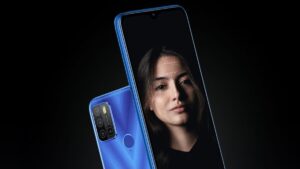In today’s world, technology is everywhere. It helps us stay connected, entertained, and informed. But have you ever wondered if it’s also making us feel more alone? Recent studies show that technology and loneliness are more linked than we think. From social media to text messaging and binge-watching TV shows, our digital habits are affecting how we connect with each other—and it’s not always for the better.

| Key Insights | Explanation |
|---|---|
| Tech and Loneliness are Connected | Research shows a strong link between tech use and feelings of loneliness, especially among teenagers. |
| Social Media Comparisons | Comparing yourself with others on platforms like Instagram can lead to feelings of loneliness. |
| Text Messaging vs. Real Conversations | Texting may limit authentic communication, leading to feelings of isolation. |
| Binge-Watching and Mental Health | Watching too many shows or scrolling endlessly on social media can contribute to loneliness and stress. |
| Authentic Connections Matter | Video calls or real-life interactions are much healthier for mental well-being than text-only conversations. |
The Hidden Truth About Social Media
Social media can feel like a fun way to stay in touch with friends, but it can also leave us feeling lonely. Laura Marciano, a Harvard researcher, found that even though teens are glued to their phones and social media apps like Instagram, they often don’t talk to anyone in person or even online for hours at a time. This isn’t just about being busy—it’s a deeper issue of disconnect. When we scroll through pictures of other people’s lives, it’s easy to feel like everyone else is doing better than us. This feeling of “I’m not good enough” is a huge factor in loneliness.
Interestingly, social comparisons—where we compare ourselves to others—aren’t always harmful. For example, if you see a friend get a scholarship or learn something new, it could inspire you to do the same. But when we compare ourselves in a way that makes us feel like we’re behind, it creates a lot of negative emotions, such as jealousy or fear of missing out (FOMO).
If you ever feel bad after scrolling through social media, it’s okay to take a break. Consider hiding the number of likes or reshares you see on posts. Instagram even lets you do this in the settings! Try focusing on the people who inspire or uplift you rather than those who make you feel worse.
Texting Doesn’t Always Mean Connecting
Let’s talk about texting. Sure, it’s the quickest way to communicate, but it’s not the best for building real connections. Texting lacks the emotional cues we get from face-to-face conversations, like tone of voice or body language. It’s no surprise that many teens report feeling disconnected when texting. One friend might take too long to reply, and suddenly you feel left out.
If texting starts to feel lonely, try switching to a video call, or at least send a voice message. Hearing someone’s voice can make you feel much closer to them than reading a text. Remember, authentic conversations matter much more than text replies.
Binge-Watching: A Temporary Escape
During the pandemic, many of us turned to binge-watching our favorite TV shows to escape the stress of the world. But did you know that watching too many episodes of Netflix or scrolling endlessly through TikTok can make you feel more isolated? Researchers have found that binge-watching not only leads to depression and anxiety but also takes away time from connecting with real people.
It’s tempting to stay glued to the screen for hours, but it’s important to find a balance. Try setting limits on how much time you spend streaming. Netflix, for example, lets you turn off the “auto-play” feature so you won’t keep watching episodes without realizing it. Take time for real-life activities—like calling a friend or going for a walk—that help boost your mood and make you feel more connected to the world.
What Can We Do About It?
The connection between technology and loneliness is real, but the good news is that we can change how we use tech to make it work for us rather than against us. Here are a few things you can try:
- Limit Social Media Use: Take breaks from social media if it makes you feel lonely or anxious. Focus on real connections instead.
- Communicate Authentically: Instead of just texting, try calling or video chatting with friends to create deeper connections.
- Balance Screen Time: Set time limits for binge-watching or scrolling. Use apps’ screen-time features to remind you when to take a break.
- Pause and Reflect: If you’re feeling down after using tech, take a moment to reflect. It’s okay to step away and reconnect with yourself or others.
Looking Ahead
Technology will continue to evolve, and so will our relationship with it. While it’s a great tool for staying connected, it’s also important to remember that nothing beats the real thing—genuine, face-to-face human interaction. As we learn to manage our tech habits, we can avoid the feelings of loneliness that can creep up when we rely on it too much.














Add comment